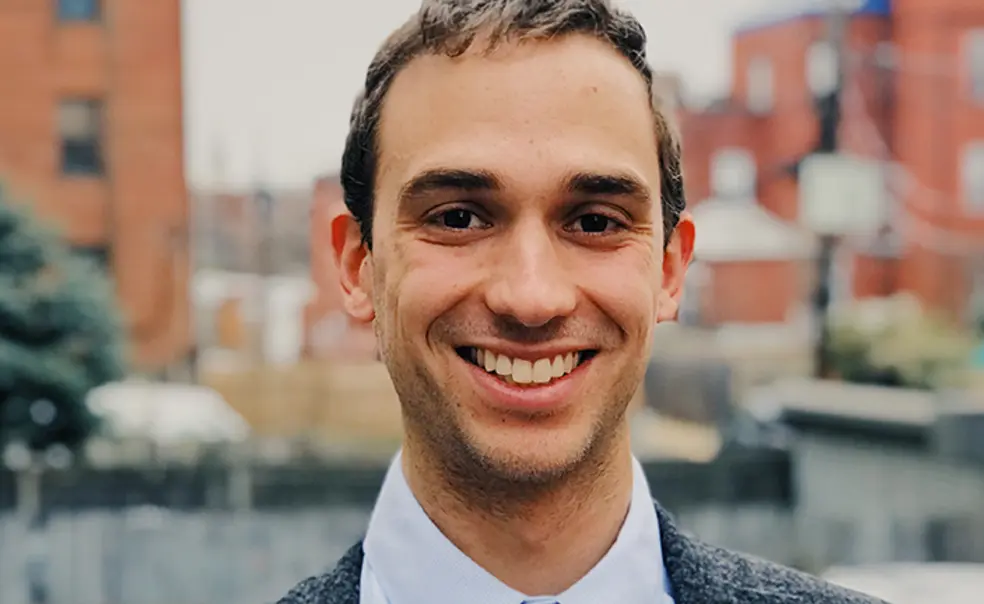Ryan Benitez ’15 Is Connecting African Students With Universities
SAT tutoring in Uganda started Benitez on the road to starting a college-access nonprofit
Ryan Benitez ’15 points to the summer between his sophomore and junior years at Princeton as the time when he found his purpose.
A hockey player, Benitez initially wanted to find a way to go abroad that didn’t interfere with the hockey season. Princeton’s International Internship Program, which matched students with summer internships abroad, made the most sense.
Benitez perused the program’s list of available international internships with a vague notion of finding one related to consulting or banking in Italy or France — countries he had visited before with family. Then something completely different caught his eye: The Japanese charity Ashinaga, which supports children who have lost parents, wanted to hire an SAT math tutor for three students it had identified in Uganda.
“I couldn’t have told you where Uganda was,” recalls Benitez. “I wasn’t all that interested in the continent of Africa. But I felt like, ‘That’s where I should be this summer.’”
Benitez soon found himself in Uganda. He admits now that he arrived with a somewhat inflated sense of self.
“I thought I was really hot stuff because I went to Princeton,” says Benitez. “When I got to Uganda, I quickly realized that the students I was teaching were significantly smarter than me and significantly smarter than my Princeton classmates.”
What a loss it would be, thought Benitez, if he couldn’t find a way for these students to continue their education.
The stakes became even clearer one sweltering Ugandan Sunday morning when Benitez was on his way to church with one of his students. She tugged at his sleeve to get his attention. “Do you see that guy over there?” Benitez recalls her asking.
He looked up to see a laborer in blue coveralls pushing a wheelbarrow up a steep hill. The student explained that the laborer had been a finalist for the same Ashinaga program that she was now in, but hadn’t been selected.
“It was a very visceral image,” says Benitez. “Presumably he’s just as smart as her.”
That fall, Benitez returned to Princeton on a mission to continue making a difference in the lives of his three students. That involved some very late nights. On at least one hockey team trip, Benitez found himself editing his Ugandan students’ college essays in a hotel lobby when the rest of the hockey team was already asleep. Benitez also persuaded the director of Princeton’s International Internship Program to use her position to open doors for his students.
In the end, all three received full scholarships to attend undergraduate programs in the U.S. The girl who tugged at Ryan’s sleeve is currently pursuing a master’s in education at Harvard University.
After Princeton, Ryan went on to work for Ashinaga full time for three years. But as an individual, he realized, he could only do so much. He recalls thinking that with a tech solution, maybe he could go from helping five students a year to helping 5 million.
That was the genesis for the nonprofit Benitez started in 2018, Meto. It collects the sometimes-obscure data on international students that universities seek. With a focus on the African continent, Meto vets the data with help from local college counselors and ministries of education, then charges universities a fee to run queries on its data set.
Meto aims to tilt the scales in favor of students by having universities inquire about them rather than the other way around. Often these students don’t have the resources to waste on applications that will otherwise go unnoticed.
“That’s the power of the directionality,” says Benitez. “They’re reaching out to those students for a reason, and they’re not going to waste their time or their money.”
Recent queries have included whether a student is from a low-income background in Ethiopia and whether a student is a refugee, one of the criteria for a Mastercard Foundation scholarship, Benitez says. Ashinaga also uses Meto to find students who have lost parents.
To fund itself, Meto is currently 80 percent reliant on donations and 20 percent on fees charged to universities. Over the next four years, Benitez hopes to shift Meto to be 100 percent self-sustaining and able to fund scholarships of its own.
“There’s something beautiful about human nature,” says Benitez. “When we feel like we are actually making a difference toward a mission that we think is important, there’s nothing greater than that. You can lose yourself in it for hours and days. Here I am eight or nine years after that first summer and I still haven’t lost the excitement of being able to do that.”
Meto put together this video to explain its approach to college access in Africa:












No responses yet